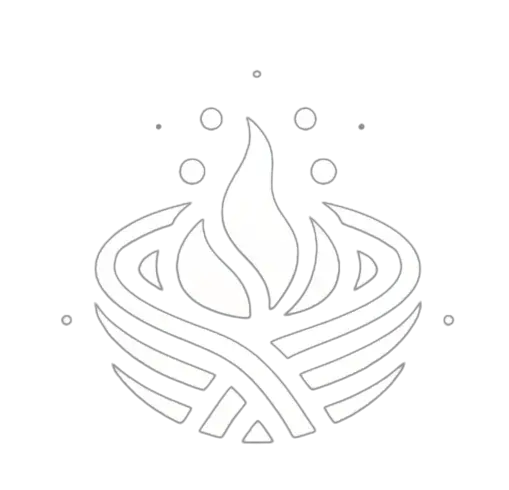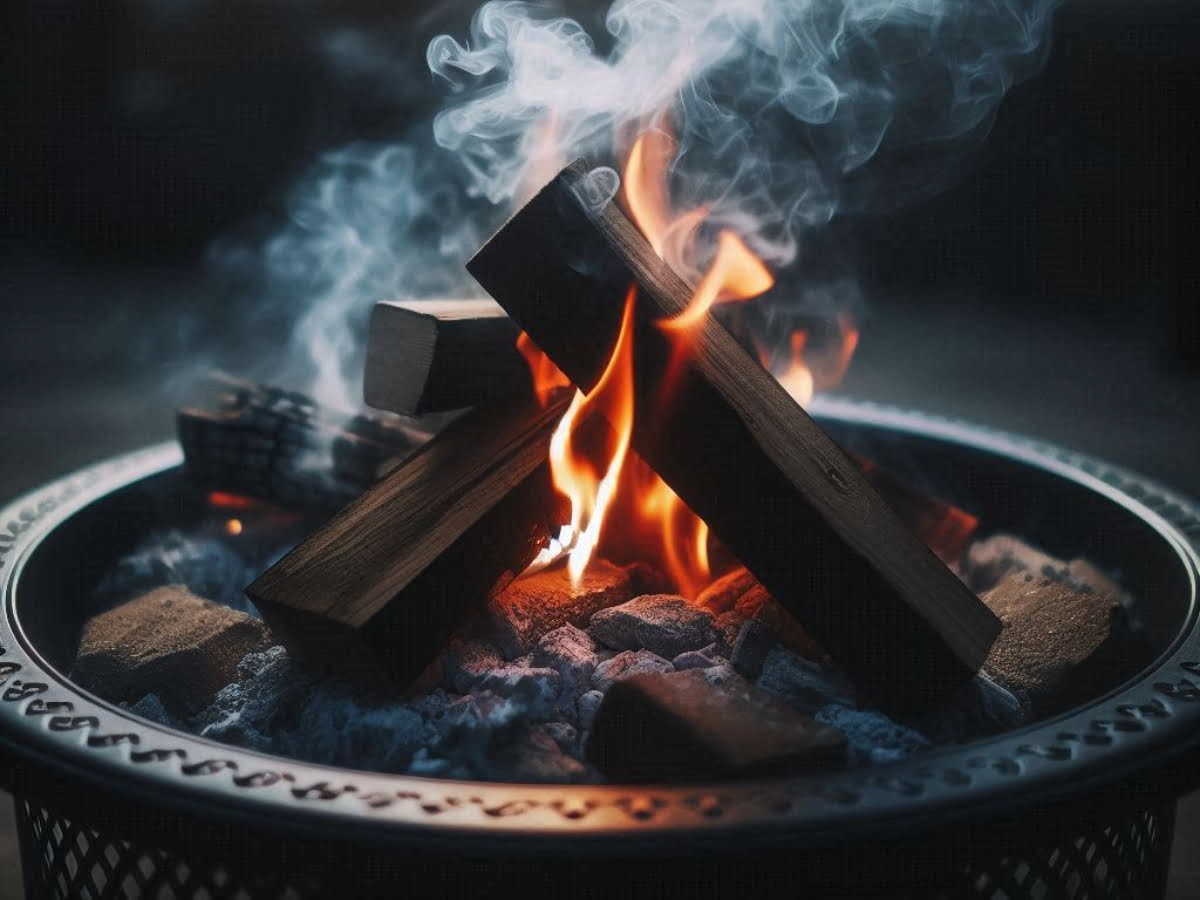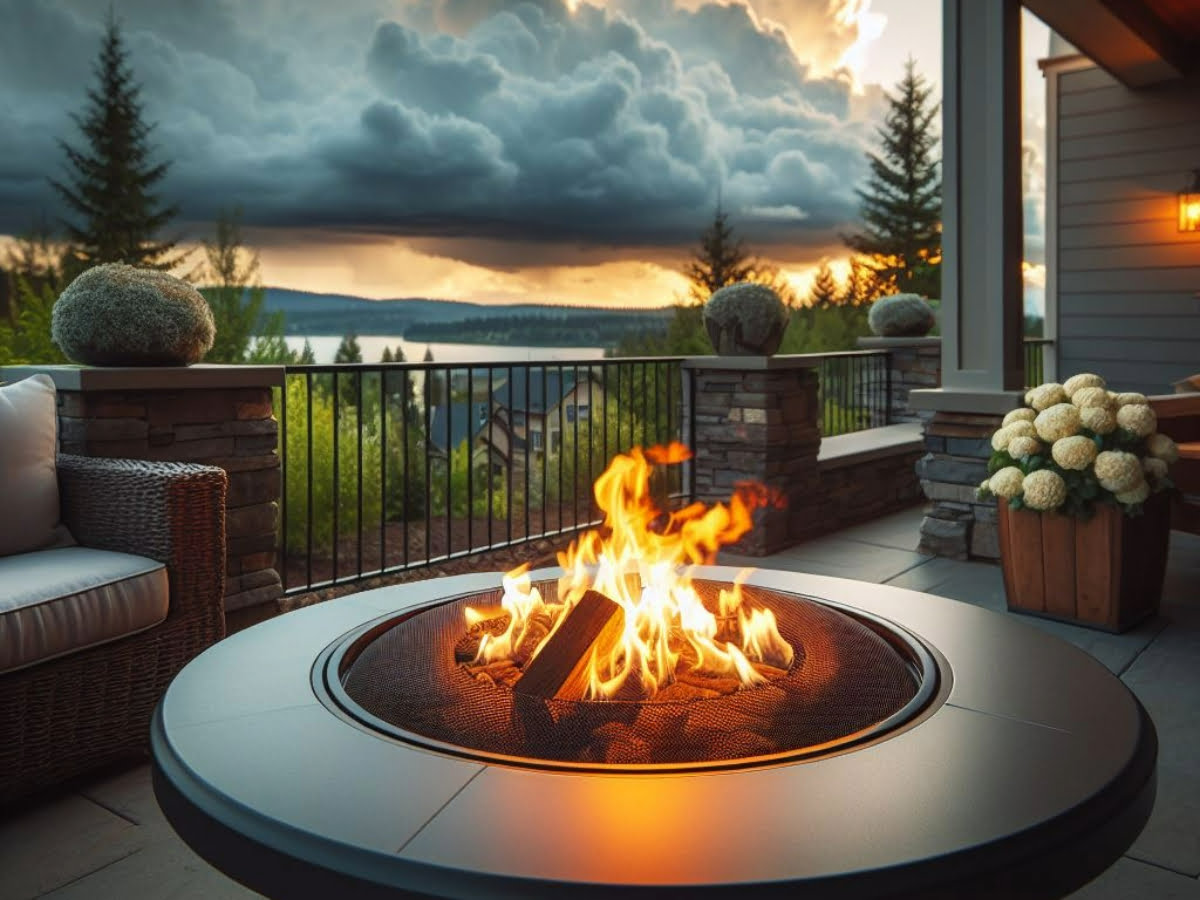
When you set out to enjoy a pleasant evening hanging out by your fire pit, the type of wood you have access to can have a big impact on the quality of your fire and how safe you are overall. The question often comes up for fire pit enthusiasts, “Can you burn rotten wood in fire pit?” because the type of wood you choose can make a big difference in the quality of your fire and the safety of the people around it. In this blog, we are going to dive into burning rotten wood, the risks involved in burning rotten wood so that you can enjoy your fire pit confidently and you and others can be safe.
What is Rotten Wood?
Rotten wood refers to wood that has significantly deteriorated due to prolonged exposure to moisture and microorganisms like fungi and bacteria. Wood rot, caused by fungi that breaks down the structural integrity of the wood will first make it soft then its color will be off and it will often smell musty. Rotten wood is typically spongy to the touch, darker in color, and oftentimes mold or mildew is visibly growing on the surface. Understanding the nature of rotten wood is crucial before deciding whether it can be safely burned in a fire pit.
Can You Burn Rotten Wood in Fire Pit?
Burning rotten wood in a fire pit is possible in theory, however, it is not advisable for many reasons. Rotten wood is high in moisture, which makes the wood burn less than ideally and you will have a lot of smoke because it is not able to burn well. Burning rotten wood can be concerning for your health because when rotten wood is burned, mold spores and pathogens can be released in the air and is likely harmful to inhale, particularly for those who have chronic respiratory conditions. On top of that, it smells bad and you are likely to have a big mess to clean up, with all of the ash and partially burned pieces. For a fire that’s safer and more enjoyable, we recommend using seasoned, dry wood.
Problems with Burning Rotten Wood (Risks and Health Concerns):
Health Risks:
Burning rotten wood can release mold spores or harmful pathogens into the air, which can be harmful to breathe in. This can be of particular concern to anyone with respiratory issues, allergies, and lowered immune systems, as there could be serious health impacts such as irritated throat and lungs, coughing, and in the worst case scenario, respiratory distress.
Air Quality Issues:
Rotten wood tends to produce excessive when burned, usually due to the high moisture content. The smoke from rotten wood can contain harmful particles and pollutants, which can harm the air quality in the area and create potential respiratory problems for people nearby. Poor air quality extends from the local area to the larger environment.
Incomplete Combustion:
Rotten wood, due to the decayed condition, does not burn completely. This results in ash and partially burned wood, which produces more residue to clean up and dispose of after the fire. Ultimately, this means that there is more to clean up and poses a less efficient burn.

Unpleasant Odor:
When burned, rotten wood usually gives off a powerful and unpleasant musty smell. The terrible odor emitted when burning rotten wood can travel in the air to the nearby space. This unpleasant smell that can make the fire pit less enjoyable for you and your guests.
Fire Safety Concerns:
Rotten wood can generate unexpected sparks and flames when burned, making the risk of spreading the fire greater. The actions of the fire can be erratic, which makes it difficult for the fire to be controlled. Because the fire is difficult to control, the risk of fire-related accidents is greater.
How Can I Tell if Wood is Too Rotten to Burn?
Rotten wood is typically soft and somewhat spongy to the touch and especially will break apart easily indicating advanced decay, in contrast to sound wood that is hard and resilient. Look for wood that may show signs of discoloration, like black, brown or green colored patches that could indicate mold and fungi. Rotten wood may typically produce a smell that is musty, or as some interpret, moldy, due to the colonization of decay promoting microorganisms.
High moisture content, which can be detected with a moisture meter, can correspond with rotten wood, make the wood difficult to ignite, and a challenge to keep burning. If the wood breaks apart quickly and has advanced signs of decay, it is likely that the wood is too rotten to burn, and should not be used for burning in the fire pit.
Can I Mix Rotten Wood with Seasoned Wood in a Fire Pit?
It is not recommended to mix seasoned wood and rotten wood in your fire pit, as this practice can lead to an inefficient use of the materials you have. Seasoned wood, which burns cleanly and efficiently, cannot perform to its full potential when burned alongside rotten wood. This is because the rotting wood will contain significant moisture, thus playing a role in extinguishing the fire and lessening the amount of energy the seasoned wood can produce. The recommendation is to burn only dry and well-seasoned wood in your fire pit, this way you will not only be more efficient, but also keep your air cleaner from the wood-burned particles.
How to Dispose of Rotten Wood (What to Do with Rotten Wood):
Composting Rotten Wood:
If your rotten wood is untreated , rotten wood can be put in a compost pile. Rotten wood breaks down naturally and will likely be a source of organic matter. Cut up the rotten wood into smaller pieces so they breakdown faster.
Mulching with Rotten Wood:
Another method to dispose of rotten wood is to chip it down and use it as mulch in gardens and landscaping. This serves as a way of preserving soil moisture and also controls weeds, while also recycling the decayed material. Make sure the wood is untreated before mulching.
Landfill Disposal:
If the rotten wood waste is extensive or cannot be utilized in a compost pile or for mulching, landfill disposal is another option. Consider reaching out to your nearest waste management facility that handles the disposal of wood waste. Many facilities have specific guidelines on how to treat and dispose of the organic material.
Wood Recycling:
Consider using a recycling center to dispose of any untreated wood. Some centers accept untreated wood, which can be processed into wood chips or other recycled products. Check with your local recycling center to see if they accept rotten wood. Utilizing this method ensures the wood will be repurposed, rather than contributing to landfill waste.
By using the methods above, you can dispose of your rotten wood in a responsible manner, while minimizing its environmental impact, and keeping your outdoor area clean and safe.









